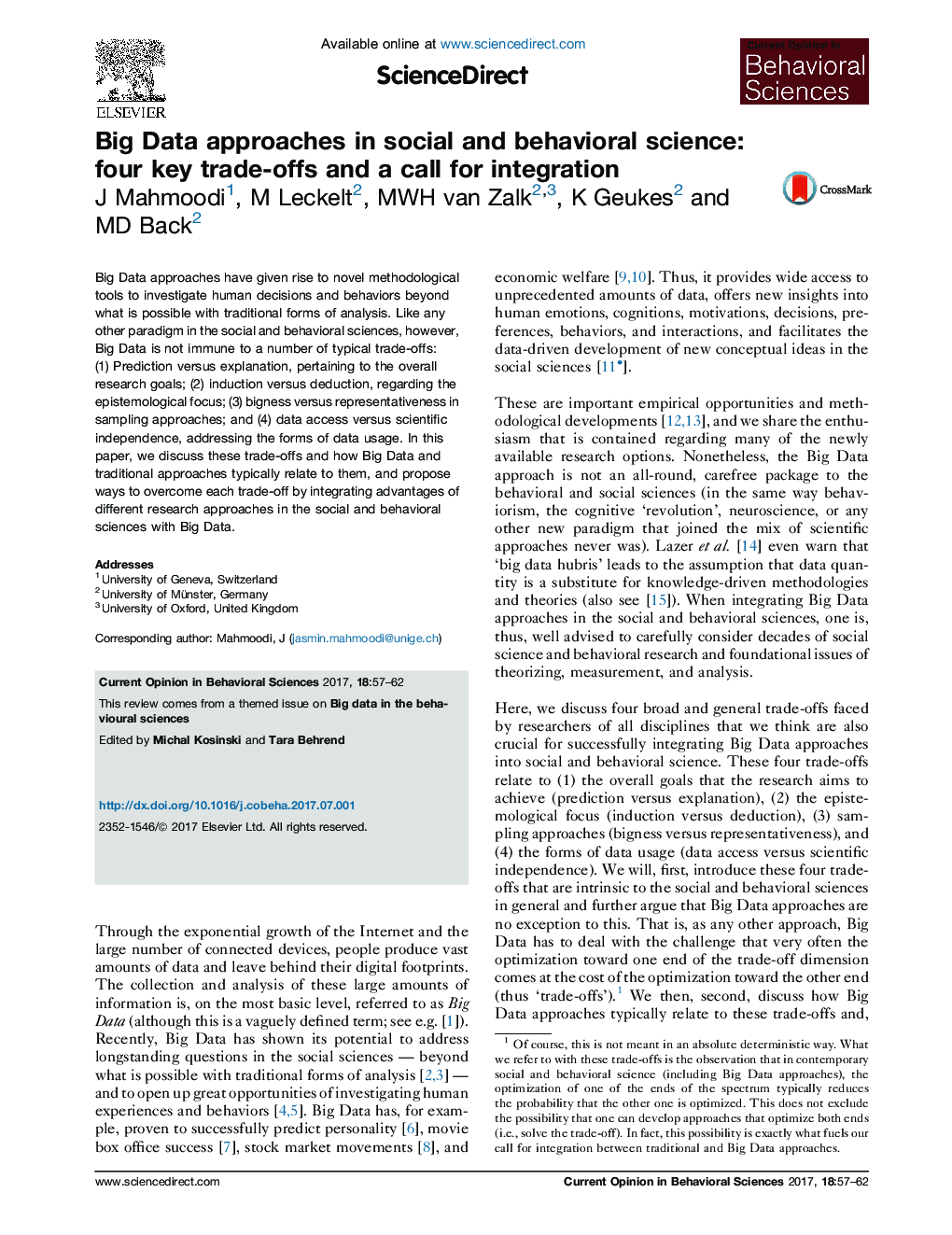| Article ID | Journal | Published Year | Pages | File Type |
|---|---|---|---|---|
| 5735720 | Current Opinion in Behavioral Sciences | 2017 | 6 Pages |
Abstract
Big Data approaches have given rise to novel methodological tools to investigate human decisions and behaviors beyond what is possible with traditional forms of analysis. Like any other paradigm in the social and behavioral sciences, however, Big Data is not immune to a number of typical trade-offs: (1) Prediction versus explanation, pertaining to the overall research goals; (2) induction versus deduction, regarding the epistemological focus; (3) bigness versus representativeness in sampling approaches; and (4) data access versus scientific independence, addressing the forms of data usage. In this paper, we discuss these trade-offs and how Big Data and traditional approaches typically relate to them, and propose ways to overcome each trade-off by integrating advantages of different research approaches in the social and behavioral sciences with Big Data.
Related Topics
Life Sciences
Neuroscience
Behavioral Neuroscience
Authors
J Mahmoodi, M Leckelt, MWH van Zalk, K Geukes, MD Back,
